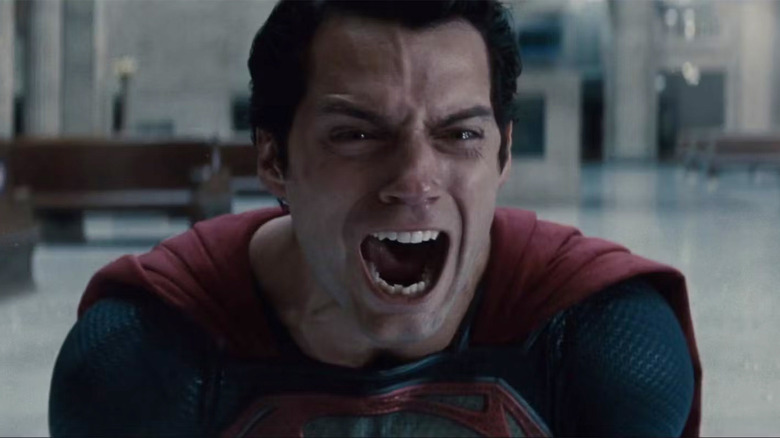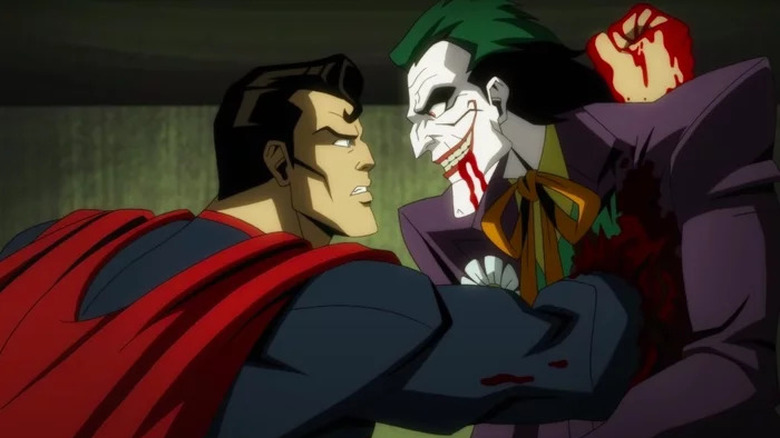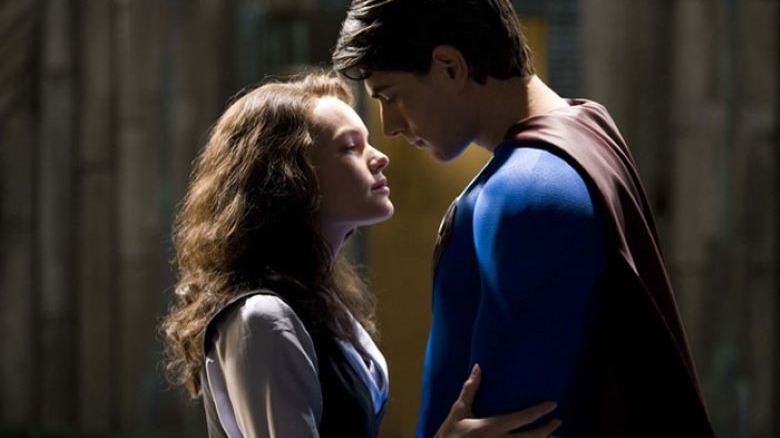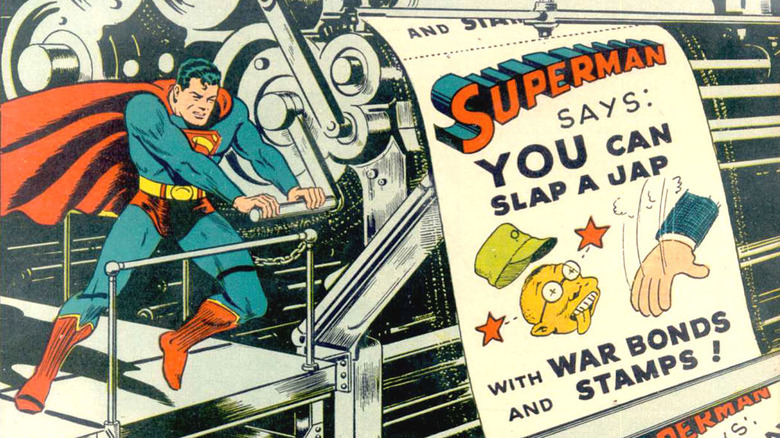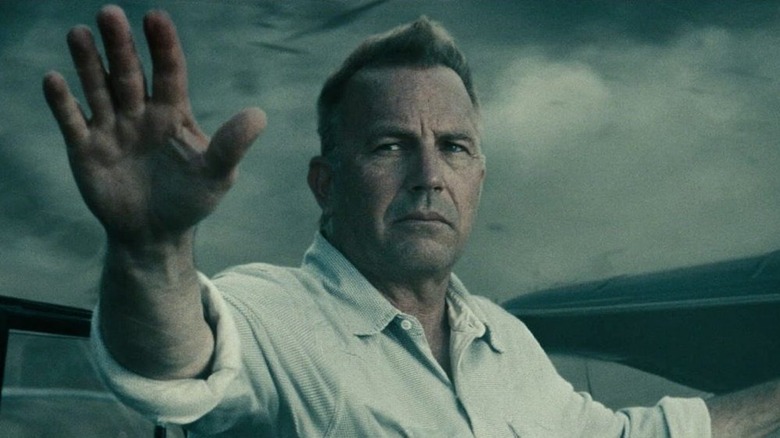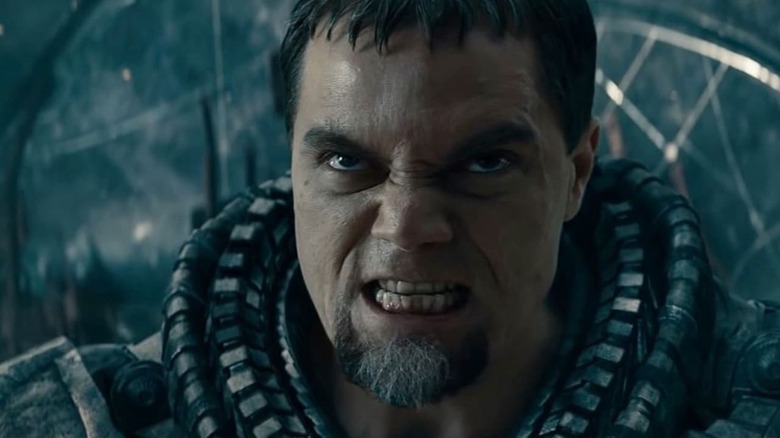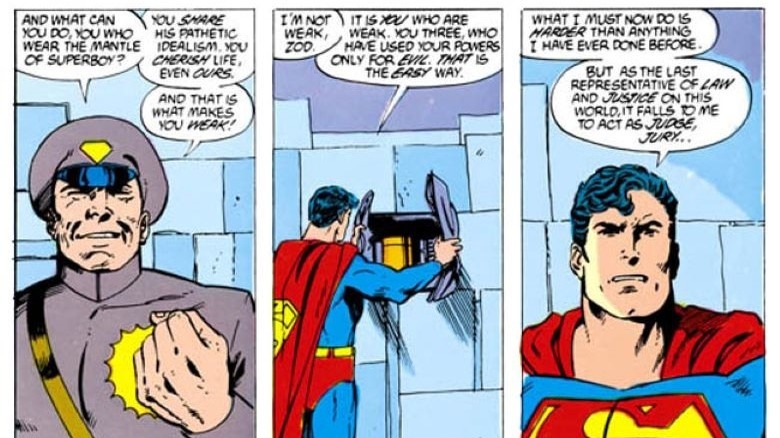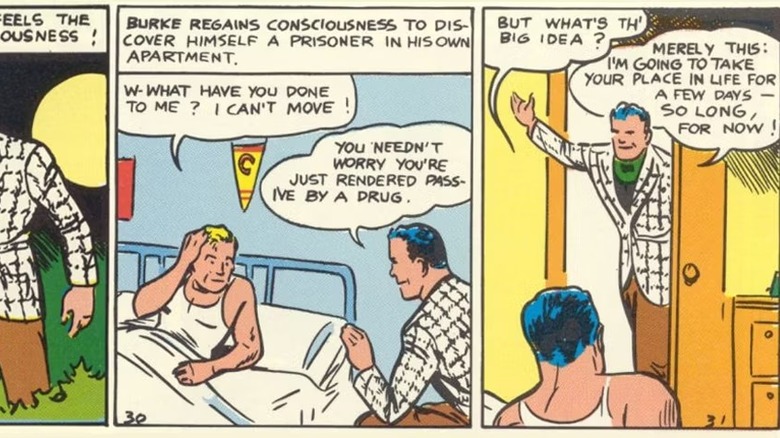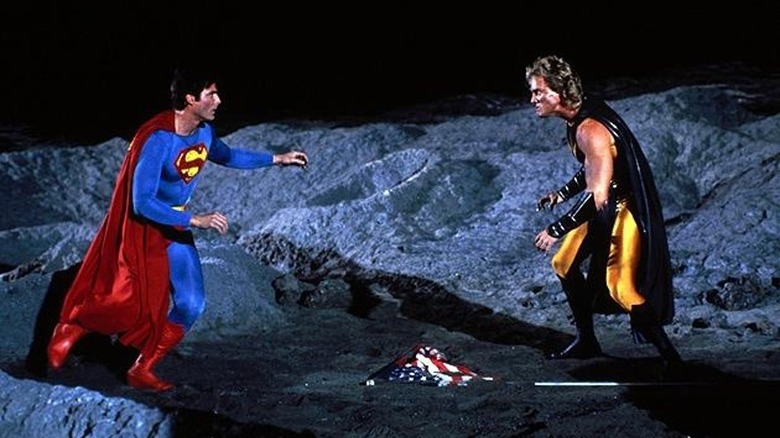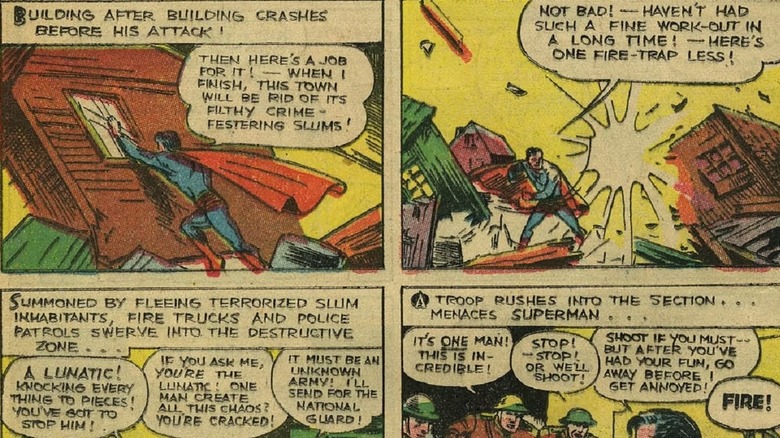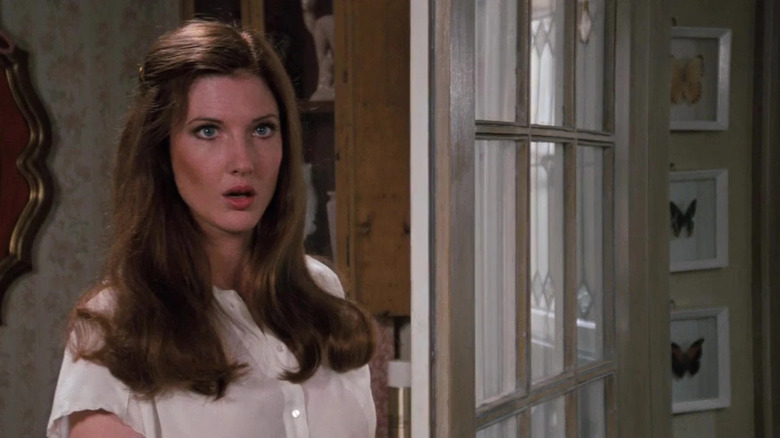The Worst Things Superman Has Ever Done: Leaving Pregnant Lois Lane, Getting Racist & More
Superman may be colloquially known as "The Big Blue Boy Scout," but sometimes, he can be straight up villainous. Sure, he's saved Metropolis (and the world) more times than any individual can count, however, that doesn't excuse his moments of cruelty and authoritarian-brand of justice.
The most interesting aspect of Superman as a character derives from his immortality on Earth. Short of using Kryptonite, our measly human-made weapons never account for much damage against the Man of Steel. The only thing stopping Clark Kent/Superman from taking over the world or causing serious harm is his sense of righteousness.
While Supes, for the most part, doesn't allow his ego or greed to corrupt him, he's certainly made some questionable decisions across his nearly-90 year history. As we prepare for the cinematic return of Superman with James Gunn's "Superman: Legacy," let's remind ourselves that even our most morally straight hero falters.
Murders Joker and becomes the world's dictator
The idea of a fascist Superman has inspired the minds of comic-book lovers, including Zack Snyder, for a long time now. Tom Taylor and Brian Buccellato's comic book series, "Injustice: Gods Among Us" (and the subsequent video games and animated film, seen above), delivers on this premise in the most visceral and violent fashion possible.
In the opening panels of the series, Joker uses a custom-blend of poison mixed with Kryptonite on Superman, causing Supes to confuse his pregnant wife, Lois Lane, for Doomsday. This vicious trick results in Superman unknowingly killing Lois, their unborn child, as well as setting off a nuclear weapon that destroys Metropolis. Overcome with rage, grief, and guilt, Superman brutally punches a hole right through Joker's chest, and soon after, he uses his powers to command authority over the world.
Undoubtedly, Superman murdering Joker under these circumstances comes with a high degree of understanding. However, it's hard to excuse his decision to rule over Earth as, effectively, a dictator and betraying the trust humankind placed in him. Early iterations of Superman had him fighting against fascists, so it feels particularly hypocritical of him to embody those ideals, no matter what drove him to that point.
Impregnates Lois and then abandons her for five years
In the opening moments of Bryan Singer's "Superman Returns," Brandon Routh's Clark Kent/Superman comes crashing back into Earth. He has been gone for five years after a failed search for surviving Kryptonians, and while Martha Kent's happy to see her son again, Lois Lane has a decidedly different reaction. Having written a Pulitzer Prize-winning piece entitled "Why the World Doesn't Need Superman," it's fair to say, Lois harbors some animosity for her then-boyfriend's absence. Understandable, considering Superman left her pregnant without so much as a good-bye, let alone an explanation of where he was going and why.
Superman's a busy guy, he's got planets to visit, people to save, but when it comes to the woman he loves and mother of his child, Lois deserved at least a heads up. Instead, Superman not only abandons the love of his life with no warning, he consequently becomes an absentee father to little Jason.
Although we never do get to see how life pans out for Superman, Lois, and Jason as Warner Bros. declined to give Singer and Routh the opportunity for a sequel, "Superman Returns" at least gives us some form of closure when Lois and Superman reunite and Superman dutifully assumes the role of father.
Gets racist during World War II
By 1943, the United States and Allies were deep in the throes of World War II, battling their enemies in Europe and in the Pacific theater where Japan rose as a dominant power. In an attempt to rile up the folks back home to support the war financially and politically, Superman stepped into the propaganda trade with "Action Comics #58."
The March 1943 cover depicts Superman manning a printing press, rolling out a large poster that reads, "SUPERMAN SAYS: YOU CAN SLAP A J** WITH WAR BONDS AND STAMPS!" Also on the poster is a white hand coming down on a starry-dazed yellow-faced caricature with small eyes and buck teeth.
It's easy to excuse such an image and message for the extremism wartime elicits, however, even within the context of America going to war with Japan, the messaging proves problematic. At this time in the U.S., thousands of American citizens were forcibly imprisoned in internment camps across the country simply for being of Japanese descent. For the Japanese American kids subject to this inhumane treatment, seeing Superman, a name-brand hero by this point, condone violence and ridicule against "a J**" would have just added salt to the wound.
Being patriotic to one's nation doesn't mean dehumanizing another, and Superman of all people should know that.
Let his father die
When Zack Snyder rebooted the "Superman" franchise for the silver screen in 2013, his first entry, "Man of Steel," inspired controversy to say the least. The Henry Cavill led film took a much darker tone to the typically optimistic Superman cinematic image, including altering canon moments in the superhero's life in an attempt to add nuance and complexity to an otherwise straight and narrow character.
One such moment occurs earlier on in the film, as an impending tornado tears through Smallville. As people run for cover, Clark's adoptive father Jonathan (Kevin Costner), takes the tornado head on in order to save the family dog. When it becomes clear that the tornado will take Jonathan's life, Clark remains on the sidelines screaming in anguish as Jonathan gently holds his arm out, signaling to his son not to use his powers to save him.
Snyder intended for this to be a touching moment of a father's sacrifice to protect his super-powered son from showing others who and what he truly is. It lays the foundation for the audience that, in this world, perhaps humans can't yet be trusted with Superman. It adds a texture that previous iterations of Superman miss out on (for comparison, Jonathan Kent dies from a heart attack in the original 1978 "Superman: The Movie"). While we can appreciate the ambitious leap Snyder took with "Man of Steel," the result remains: Superman stood by and did nothing as his father died before his eyes.
Kills General Zod
For all the eyebrows Jonathan Kent's death raised, it proved to be of lesser concern by the end of "Man of Steel." After a hard fought battle between Superman and the Kryptonians, the final stand comes down between General Zod (Michael Shannon) and the boy in blue. When Zod refuses to stand down and threatens to kill an innocent family, Superman sees no other choice but to end the General with a punctuated neck snap.
The shock horror of this moment derives from the idea that, similar to his caped crusader buddy Batman, Superman does not kill. For a long time, the difference between the heroes and villains could be found in the fine line between killing and seeking justice within the law, but Snyder's film blurred that line. Zod's death by Superman's hands quickly became a source of contentious discourse among fans, and it would come to surface that, initially, even Christopher Nolan questioned the ending of "Man of Steel."
Fun fact: Superman almost killed another time in the animated "Superman: Doomsday" movie.
Becomes the self-proclaimed judge, jury and executioner and kills three Kryptonians
When DC Comics hired writer and comic book artist John Byrne to take over the reins of Superman in 1985, our boy in blue was in desperate need of an overhaul. After nearly 50 years and many varied storylines, Byrne gave Supes a late-'80s makeover, which included being edgier, more extroverted, and becoming "Super Republican" in the image of Reagan's America. In what would be Byrne's final Superman issue, "Superman #22" featured a moment that would be emblematic of the writer's time with DC, that is to say, perhaps a little too far off the edge.
After a sequence of time manipulations, the ancient villain Time Trapper creates a pocket universe which has been destroyed by three Kryptonians. When Superman faces off with this trio, he's horrified by the destruction they've caused, especially given his kinship to them as the last son of Krypton. Seeing no other choice, he declares, "As the last representative of law and justice on this world, it falls to me to act as judge, jury, and executioner," before unleashing Green Kryptonite — thought to have been extinguished on pocket Earth — causing their demise.
The troubling set of events could be justified given the circumstances, but Superman's dismissal of the basic pillars of a democratic justice system shakes us to the core. Beyond Superman breaking his code once again, his decision to exercise authoritarian justice goes against the very fabric Superman was created, and in turn, the very fabric which America stands upon.
Drugs a college student and steals his identity to win a football game
In his first solo series ("Superman #1"), Superman co-creators Jerry Siegel and Joe Shuster gives readers their first taste of Superman's wavering ethics, albeit in a super bizarre fashion. After overhearing a college football coach's plan to hire ringers to play for him in a must-win game, Superman decides to jump in.
Instead of doing just about anything else with his infinite powers on Earth, Superman goes the drugging route. He decides to find a student who looks like him and drugs the kid, paralyzing him from the waist down. Superman then takes the field and decimates the competition.
Ignoring the fact that Superman would have surely killed the opposing team while scoring some sweet touchdowns, this whole scenario somehow gets even worse when the mob (betting on this game) decides to kidnap the newfound star player and mistakenly takes the student Superman drugged earlier. Superman knows all of this is happening and doesn't do a single thing because now that kid is "out of the way." But hey, at least the team won, right?
Pushes the moon off its axis
"Superman IV: The Quest for Peace" easily ranks as the worst Superman movie across his many cinematic appearances. Schmaltzy and a far, far cry from Richard Donner's first film, "Superman IV" also includes a pretty shocking move from Christopher Reeve's Superman.
Reflecting the Cold War sentiments of the day, "Superman IV" leans into the threat of nuclear weapons and an impending arms race between the U.S. and the Soviet Union. The film's baddie, Nuclear Man (Mark Pillow), a creation of Lex Luthor (Gene Hackman), contains great powers within him but ones that require exposure to sunlight. Knowing this, following a battle between Superman and Nuclear Man, where the villan buries Supes inside the moon, the Man of Steel (after freeing himself) pushes the moon off its axis to create an eclipse over Earth.
Nuclear Man's plans are thwarted — but at what cost? By taking the moon out of orbit, Superman would have altered Earth's gravity causing great natural catastrophes to wreak havoc across the globe. Needs musts and all, but surely Superman had a few more options at his disposal before throwing the entire planet into disarray.
Tears down tenements to rid Metropolis of its filthy crime-festering slums
Weighing in on the nature vs nurture debate in "Action Comics #8," Superman takes an interest in the criminal trial of a young boy whose mother insists to the court that her son is not to blame for his actions; rather, the responsibility lies with the tenement housing they reside in. Failing to find the fault in this logic, Superman decides destroying the slums to be the only recourse to end crime in Metropolis.
The residents of the tenements flee for their lives and helplessly look on as Superman destroys their homes piece by piece. The National Guard is called in to relieve the situation without any luck — Superman knows best after all.
In the end, the slums are replaced with some gorgeous apartments, although Siegel and Shuster don't provide any information on how the residents can afford these new swanky digs. What we do know, though, is crime in Metropolis continued on in spite of better accommodations, and Superman's a big gentrification guy.
Creepily hits on Lana Lang
Throughout "Superman III," we witness Clark Kent endearingly rekindle his relationship with childhood friend Lana Lang (Annette O'Toole). After Superman saves Lana's son, Clark offers little Ricky a chance to meet his hero, telling Lana that he and Superman are pretty close.
The celebratory nature of Superman's visit becomes tarnished when he suddenly turns cold. "You know it's unusual finding a good looking girl like you alone like this," Superman says to a visibly unsettled Lana Lang. Seated next to her in too-close-for-comfort fashion and staring at Lana with great unblinking intensity, Superman couldn't be more creepy if he tried.
As it would turn out, the flawed Kryptonite that Superman was gifted in an earlier scene has the effect of turning him selfish and detached, which explains the sinister vibes with Lana. Elevating the degree of unease in this scene is the fact that playing Superman in this film is Christopher Reeve, an inspiring humanitarian and all around good guy. No one wants to see Reeve, of all people, stare down a woman alone in her home.
